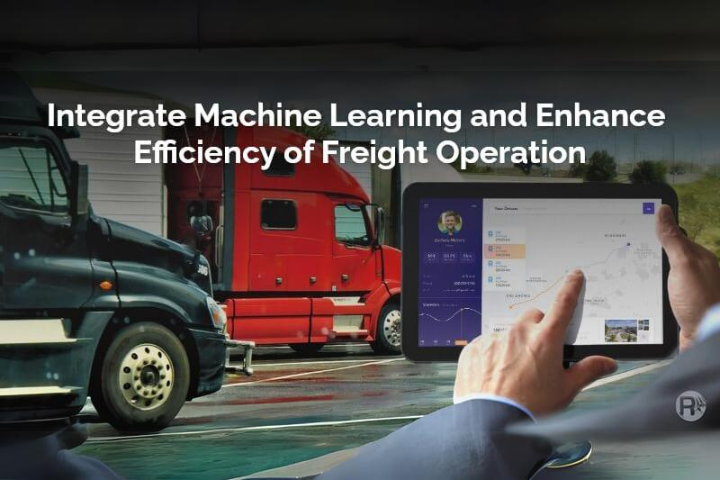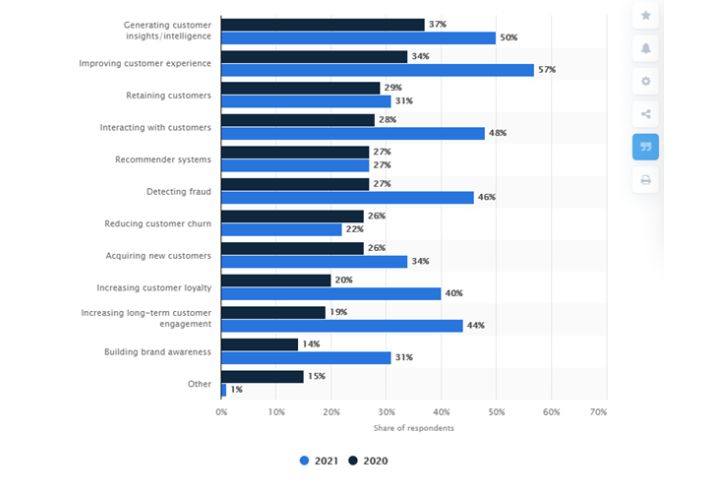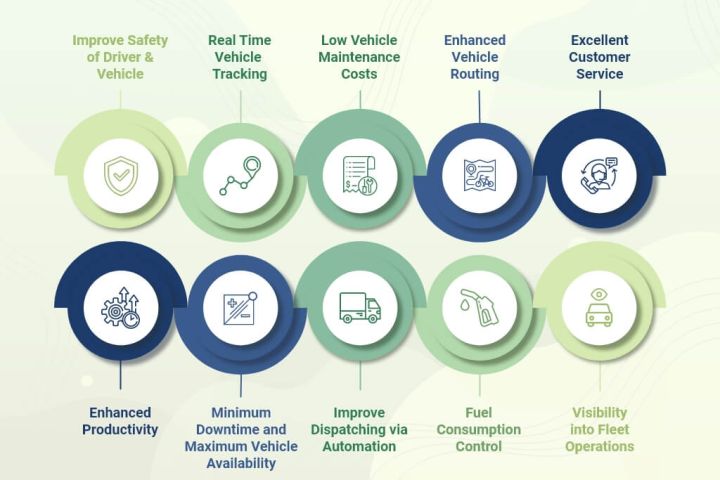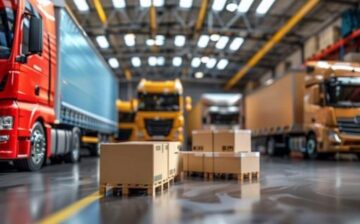
Machine learning is one of the most advanced technologies allowing businesses, including the transport industry, to improve their customer experience, track progress in real-time and stop fraud.
As technology advances, businesses are getting smarter, smoother and more efficient. There are plenty of tech innovations, such as AR/VR, Blockchain, Big data, IoT, etc., helping companies manage their business operations smoothly.
Similarly, Machine Learning, one of the major tech innovations, is proving to be the backbone for companies looking to improve customer experience, retain customers, interact with customers, and much more. In freight operation, ML can be a game-changer, but you must understand how.
This post explains the best practices of Machine Learning in transportation and how they dramatically improve freight operations. We will explore all in this post, but first, let’s explore AI and Machine Learning basics.
What is Machine Learning
Machine Learning is a subset of Artificial Intelligence. Even though there is no universal definition of Machine Learning, it is widely said to be the science that enables computers to act like humans. In short, it gradually and automatically improves through experience.
Use Cases of AI and Machine Learning
According to Statista, the deployment of Artificial Intelligence and Machine Learning can streamline business processes comprehensively. Here are the support use cases you can expect from Machine Learning in all businesses, including freight operations.
Overall, 57% of AI and Machine Learning are used for improving customers’ experience. However, it provides many other significant benefits in freight operation, from driver and vehicle safety to visibility of fleet operations.
With the integration of Machine Learning and its powerful functionalities, businesses make it an ideal solution, addressing the current-age challenges in the transportation sector.
Challenges to Maintain Freight Operations
Efficiency and cost-effectiveness have been the biggest challenges in the transport sector, especially in supply chain management. Let’s take a look at some of the top challenges and how ML can help mitigate them.
Improving Supply Chain Visibility
When it comes to smooth freight operations, inventory management is crucial to address. The transport sector, usually dependent on human resources, often fails to adjust to the unexpected shortage.
Machine learning provides businesses with 24/7 visibility into freight operations to achieve a proper balance between purchasing and stocks.
Reducing Transportation Costs
Transportation costs typically comprise around 30% of total expenses, though they can go up to 50% due to rising fuel prices. Using digital innovation, especially AI, this issue can be mitigated. For example, empowering drivers with the latest technologies, integrating vehicles with GPS, and so on can reduce transportation expenses.
Assuring Quality and Safety
In freight operations, timely product delivery is the primary goal. But it’s not just delivering the product on time, but also maintaining the quality and safety of the goods. Various things matter to assure quality and safety while delivering the product on time. For example, environmental changes, trade disputes, and much more can create challenges.
Maintaining Relationships
Scarce of resources, such as supply chain service provider professionals, drivers, etc., can raise another issue for logistics firms to maintain smooth relationships with suppliers. They need to empower their firm to address these challenges.
How can ML-driven Fleet Management Help You Deal with All Issues?
Machine learning comes with a one-stop solution for many of these issues. A human alone cannot solve the everyday problems of freight operations efficiently, but ML can. Take a look at some of the most prominent solutions it can deliver to provide a drop and hook freight experience.
Handles Real-Time Fleet Management Analytics
Data and insights like pickup and delivery times, traffic, road conditions, real-time weather reports, etc., help businesses make data-driven decisions. Managers can find the most optimal routes with low traffic and the best roads to their destinations, create shorter and proper routes, and schedule maintenance while keeping the data in mind.
Faster Repair and Maintenance
By integrating advanced technology into your freight forwarding, you get smooth management and accurate solutions. For example, integrations of IoT powered by AI and ML can forecast potential defects that might happen with your vehicle soon. Detecting faults long before they occur will save on maintenance costs and freight costs (what if the issues arise in the middle of a delivery?).
Integrated and Informed Operations
When you run a large-scale operation, you need to collect data on every moving part within the system. Indeed, a ton of data from various departments is generated, which needs to be synced and centralized. You cannot be dependent on human resources to gather all this information and maintain the process. AI can do it efficiently. Artificial Intelligence and Machine Learning efficiently integrate data across all operations and turn it into useful insights so that you can make informed decisions.
Meanwhile, it saves plenty of time and costs as all data are accessible right from your fingertips.
Ensuring Highly Secure Routes
We have already discussed how AI-driven technology helps the transport industry accumulate data related to weather, traffic, and roads, so it can be a significant factor in maintaining smooth operations by ensuring the safest routes to deliver goods.
With machine learning algorithms, you can analyze historical data to find repeated and unscheduled stoppage on the planned routes. This could possibly indicate pilferage and thefts. You can choose to avoid poorly connected areas if they do not appear to be safe. By doing so, you can minimize the chances of getting your transports robbed or your cargo stolen. This can save millions of dollars.
Benefits of AI/ML into Freight Operations
AI/ML empowers your business operations, with powerful functionalities that systematically keep your business manager informed about freight operations. With AI-powered technology such as Machine Learning, IoT, etc., you get a long list of benefits. They include:
- Improved safety of driver & vehicle
- Real time vehicle tracking
- Lower vehicle maintenance costs
- Enhanced vehicle routing
- Improved customer service
- Enhanced productivity
- Minimum downtime and maximum vehicle availability
- Improved dispatching via automation
- Fuel consumption control
- Visibility into fleet operations
Final Words
Smooth freight operations involve working through challenges. Digital solutions can help you streamline processes and enhance revenue. Machine Learning is one technology that helps bring stability and profitability to your business. You can explore plenty of other technologies to help you boost your transportation business and get more benefits.
We hope you found this blog post How Machine Learning Improves The Efficiency Of Freight Operations, useful. Be sure to check out our post 5 Expert Tips for Better Logistics Management for more great tips!
Have Experience in the Moving Industry? Want an Additional Income Stream? Work With All Around Moving!
Partner with us and we’ll help you make money. Click here to learn more.







